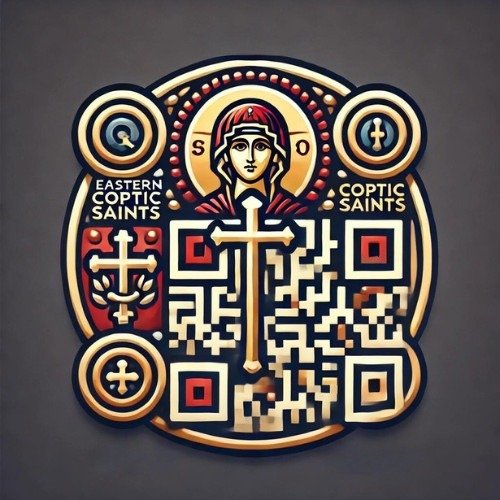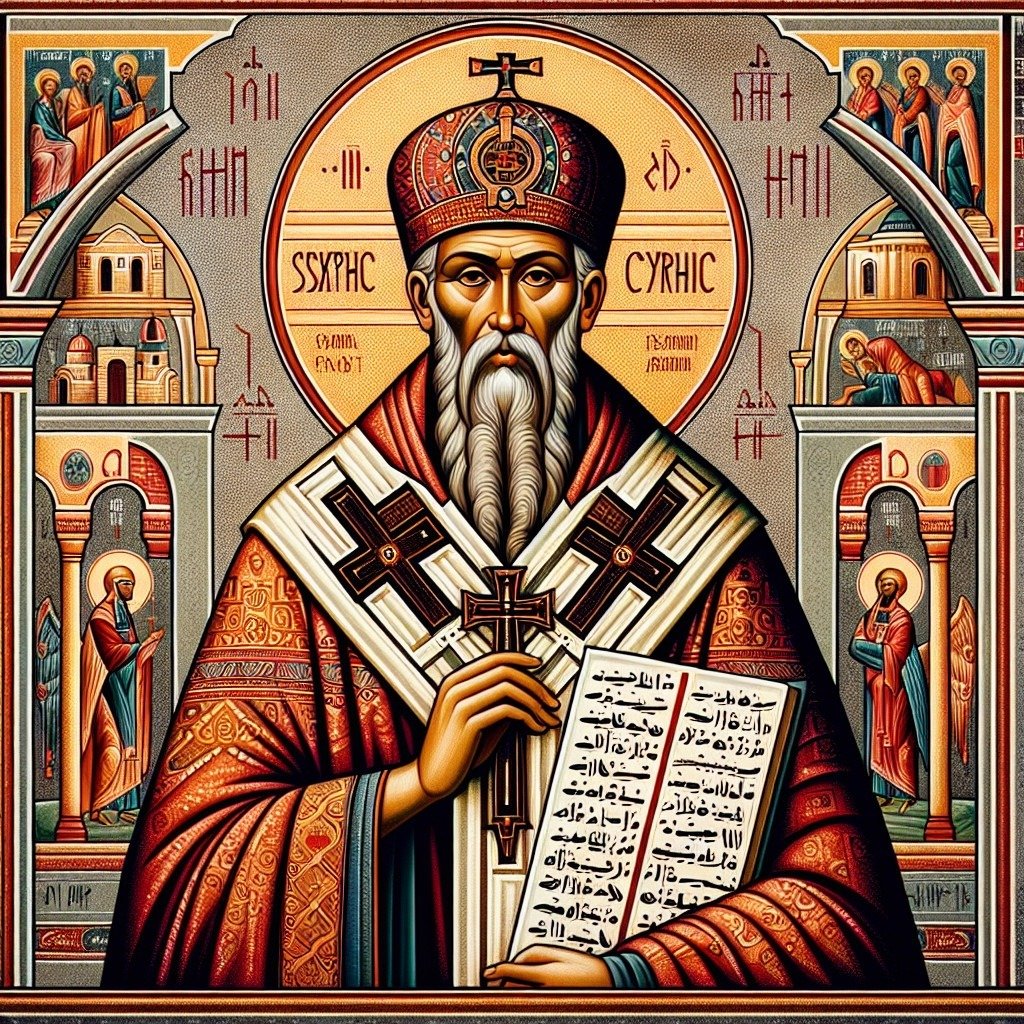 Saint Cyril I, also known as Saint Kyrillos I, was the 24th Patriarch of the See of Saint Mark, serving from 412 until 444 AD. His tenure as Pope of Alexandria was marked by his profound theological knowledge, keen ecclesiastical leadership, and unwavering commitment to the orthodox faith, which significantly shaped the early Christian church’s theological landscape.
Saint Cyril I, also known as Saint Kyrillos I, was the 24th Patriarch of the See of Saint Mark, serving from 412 until 444 AD. His tenure as Pope of Alexandria was marked by his profound theological knowledge, keen ecclesiastical leadership, and unwavering commitment to the orthodox faith, which significantly shaped the early Christian church’s theological landscape.
Born in the small town of Didouseya near the modern-day El-Mahalla El-Kubra in Egypt, Cyril exhibited great intelligence and a profound love for religious study from a young age. Upon receiving a comprehensive education in theology and classical literature, he joined the catechetical school of Alexandria, where he developed a deep understanding of the Holy Scriptures and the doctrines of the Church.
In 412 AD, following the death of his uncle, Pope Theophilus, Cyril was consecrated as the Patriarch of Alexandria. His appointment came at a time of intense theological conflict and political unrest. One of the most significant challenges he faced was the heresy of Nestorianism, which propagated the belief of the separation between Christ’s divine and human natures. This doctrine was contrary to the orthodox teaching of the unity of Christ’s nature as both fully divine and fully human.
Cyril took a firm stand against this heresy, leading the battle through his extensive theological writings and sermons. His most notable contribution was during the Council of Ephesus in 431 AD, where he played a pivotal role in the condemnation of Nestorius, affirming the doctrine of Theotokos – the belief that the Virgin Mary is the Mother of God. This council was a landmark moment in defining the orthodox understanding of Christology.
Apart from his theological contributions, Saint Cyril was also notable for his pastoral work. He emphasized the importance of charity, love, and spiritual guidance within the Christian community. His writings, many of which are still studied today, include profound commentaries on the Old and New Testaments, homilies, and theological treatises. These works reflect his deep exegesis and understanding of Christian doctrine and have earned him the title Doctor of the Church in the Coptic tradition.
Saint Cyril’s legacy is also marked by his commitment to monastic life. He supported the spread of monasticism and established several monasteries which acted as centers of learning and spiritual growth during his patriarchy. His dedication to teaching, writing, and pastoral care left an indelible impact on the Coptic Church and the broader Christian world.
He departed from this world on June 27, 444 AD, after serving as a vigilant shepherd for 32 years. His feast day is celebrated with great reverence, honoring his steadfast faith, theological brilliance, and spiritual leadership that continue to inspire the faithful.
The blessing of our blessed St. Cyril I be with us. Amen.

